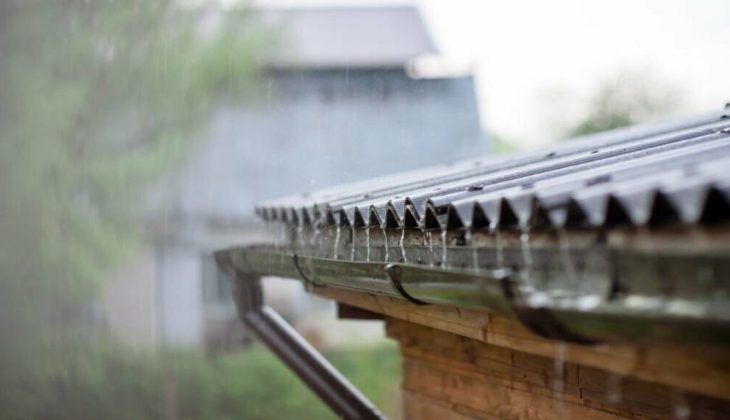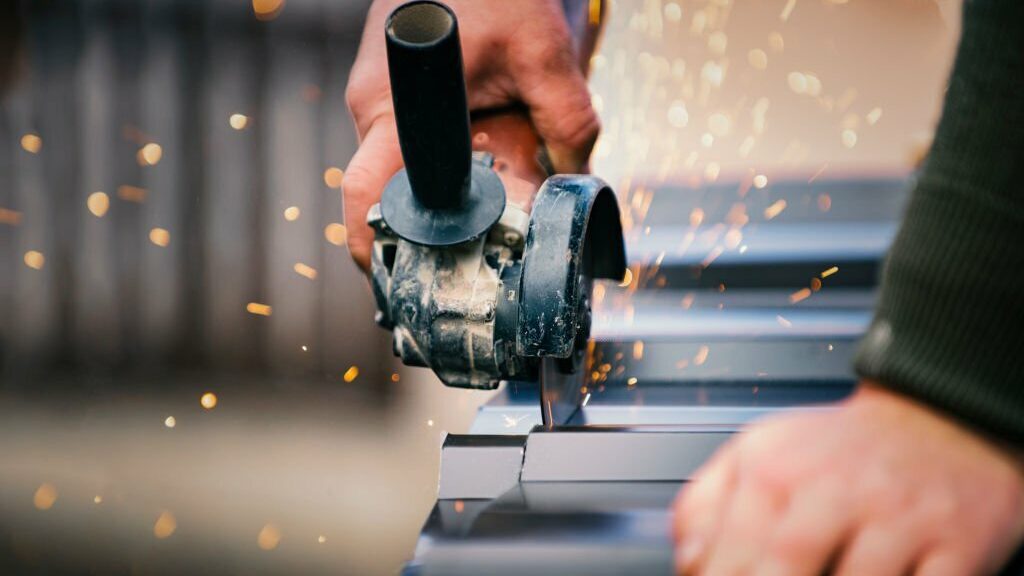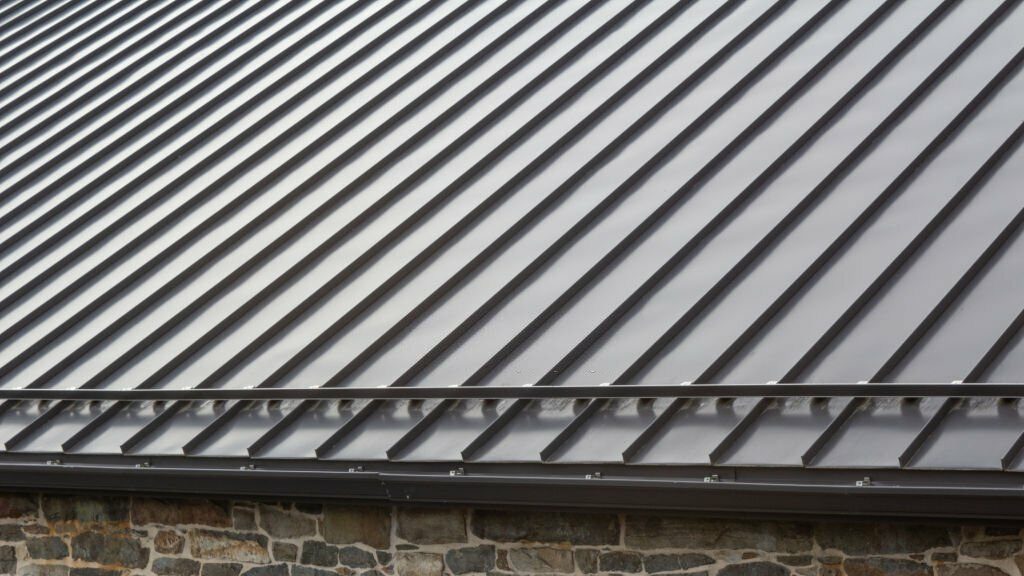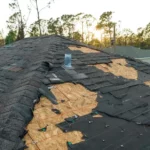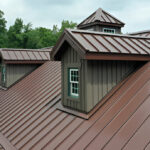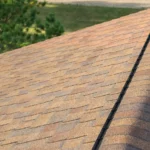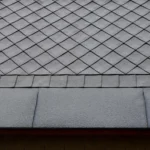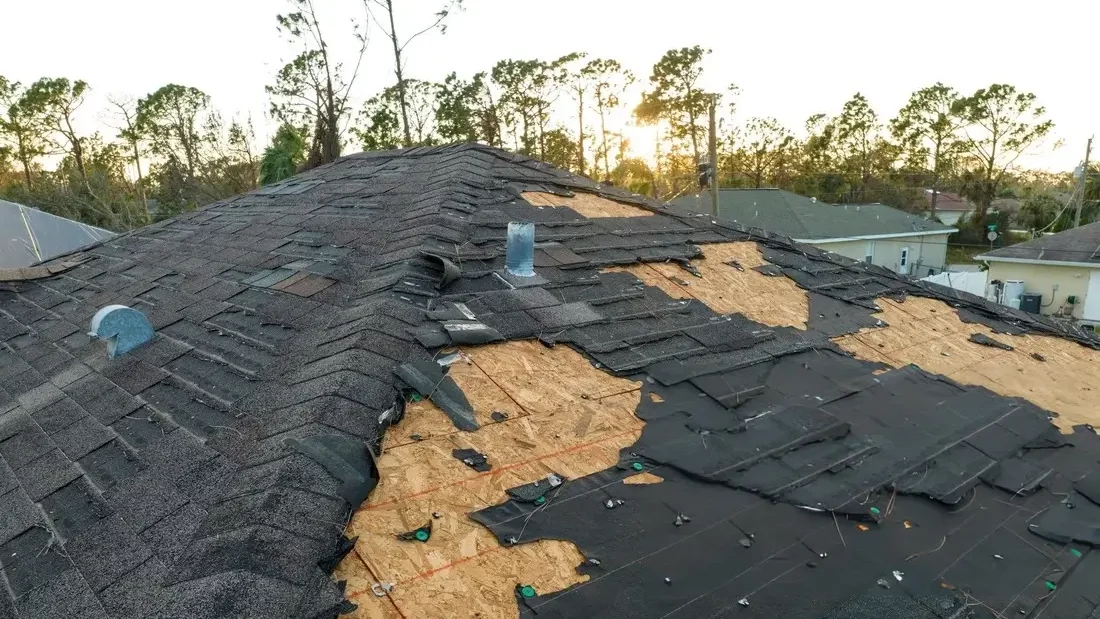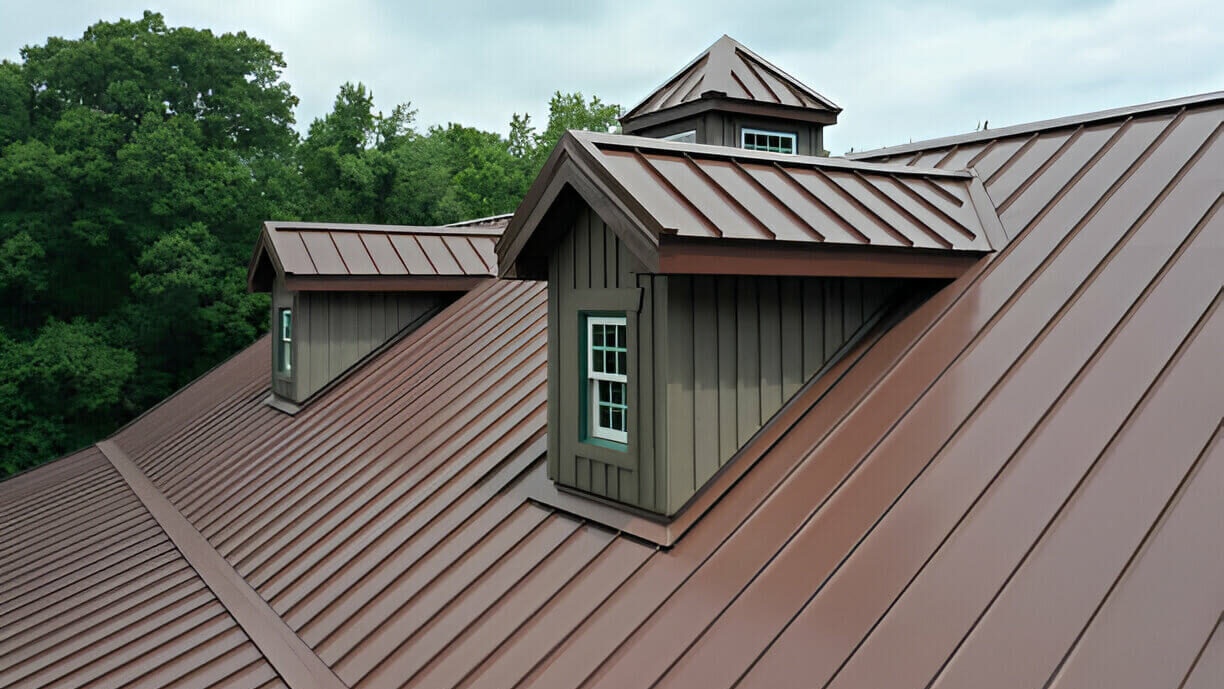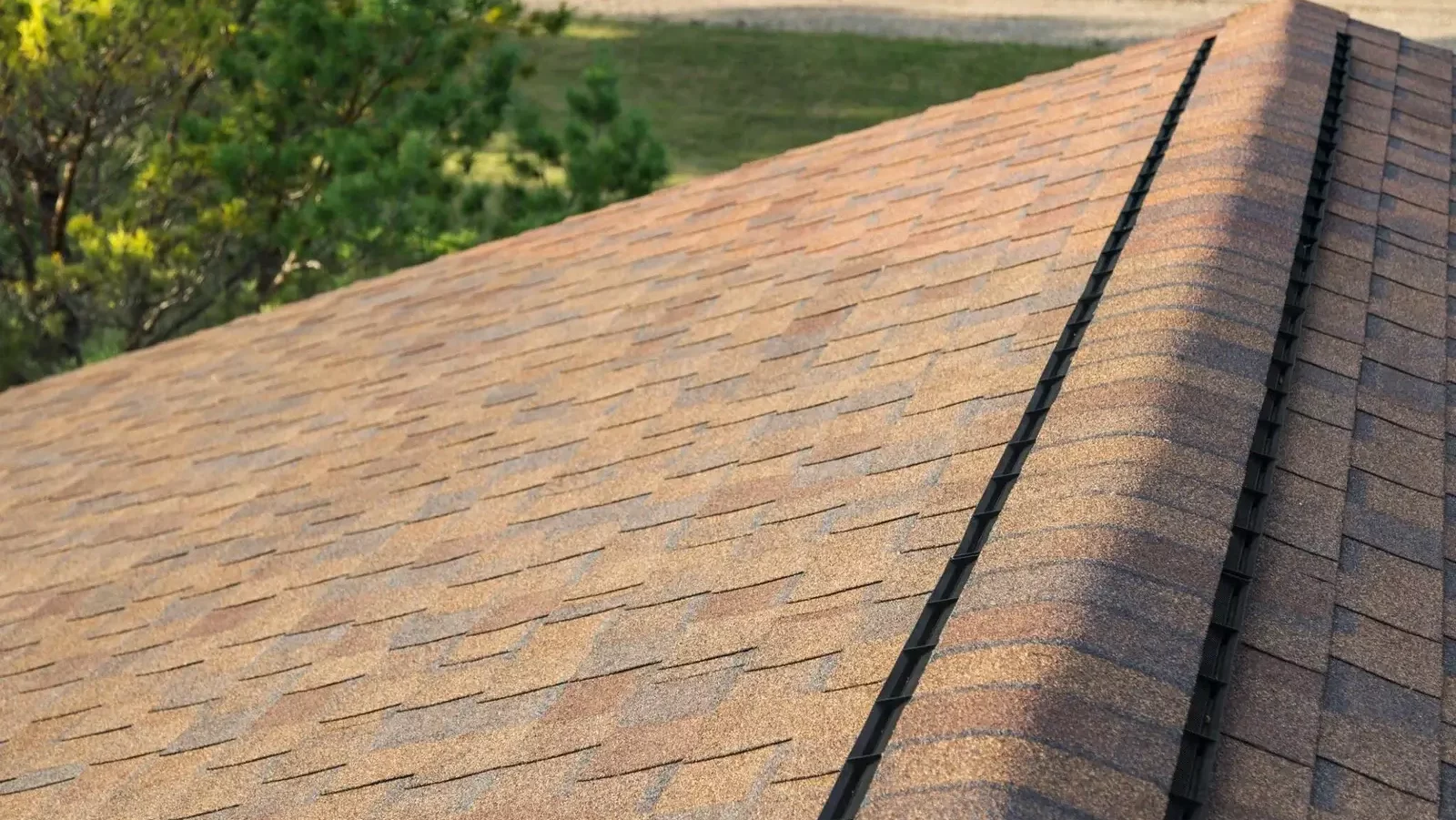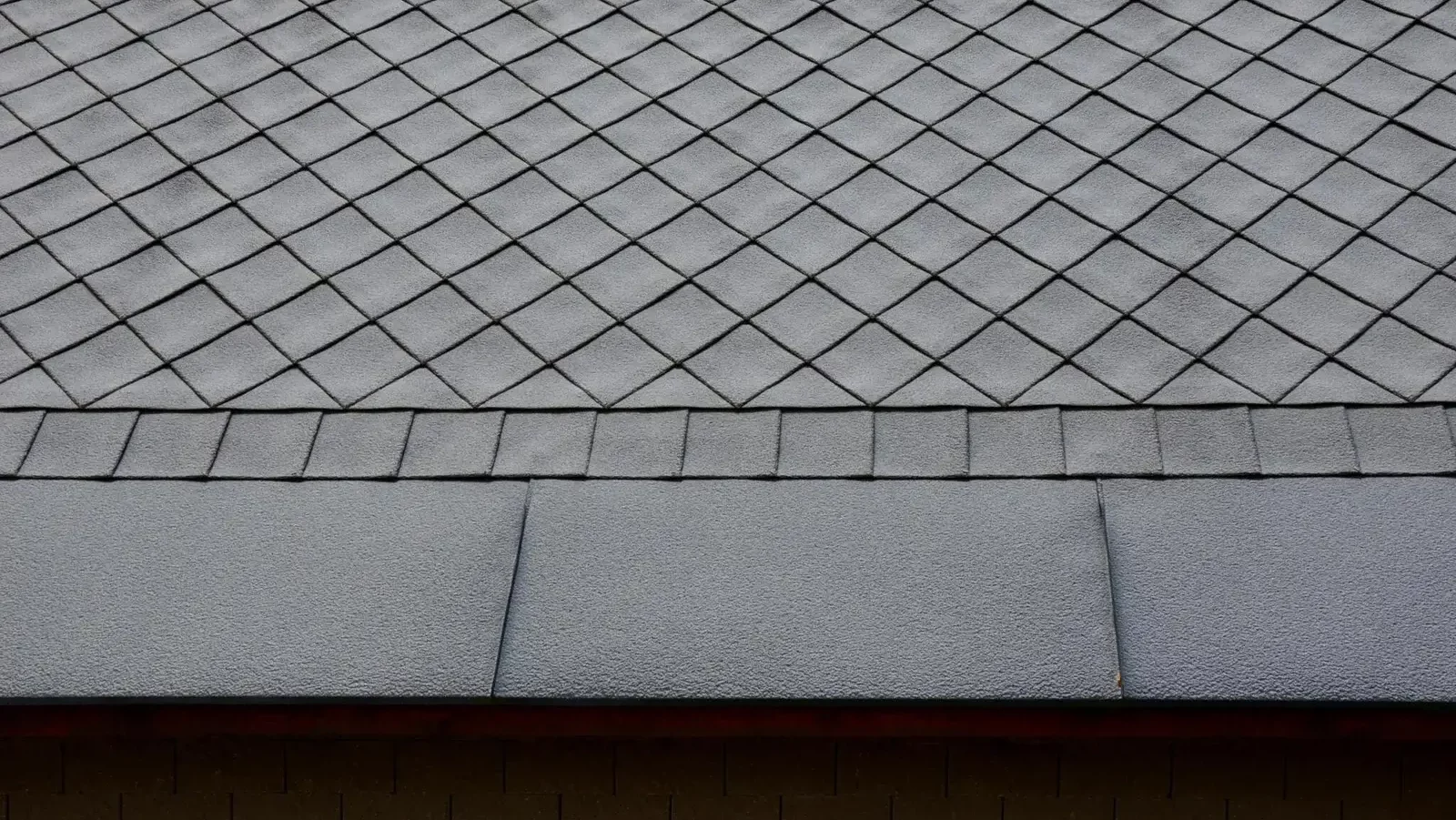We all know that some people get super annoyed with the tip-tip sound of the raindrops on the roofs. We often receive questions about metal roofing’s acoustic profile, given our years of experience in the field.
Table of Contents
ToggleNo, metal roofs are not loud during the rain. They are almost the same as asphalt shingles or any other type of roofing. However, that is also conditional. In the absence of underlayment or insulation, metal roofs may be quite noisy.
The human ears can hear from 0-130 dB. 130 is the pain threshold.
Normal human conversation is about 60 dB. How about a motorcycle? A motorcycle running is about 95 dB.
The rain sound on your metal roofs (covered) is 52 dB, a little higher than that of asphalt shingles (42 dB), but that’s undetectable to the human ear.
Let’s get into more detail to understand better how it works.
Are Metal Roofs Noisy When It Rains?
It depends. Metal roofing is an umbrella term that can be further subdivided into various types, each with its own sound level, appearance, shape, etc.
For instance, an uncoated aluminum metal roof on a barn is much louder than a house roof, requiring proper assembly.
Modern metal roofs, with insulation, underlayment, and roof decking, reduce rain noise and may lessen hail damage in insurance claims.
Is it normal for a metal roof to make noise in the rain?
It is common for metal roofing materials to produce noise due to their susceptibility to heat expansion and contraction.
However, a little bit of everything is normal. The more effectively the metal is covered, the quieter it becomes.
The roof’s structure contributes to its loudness, too.
For example, rain may scatter more quickly on a steeper pitch, which could lessen sound intensity.
On the other hand, a flatter roof could let water collect and cause a more noticeable noise when it rains.
Metal Roof Thermal Expansion Noise
Thermal expansion and contraction are very common in metal roofing materials.

Why is that, you ask?
Because of exposure to the sun all day, metal roofs expand due to the heat and contract with decreasing temperatures. This thermal expansion and contraction/oil canning can produce certain sounds like pinging and creaking.
Your roof’s popping sound is due to metal plates expanding and contracting thermally, impacting brackets and fasteners.
This is a common concern during an insurance adjuster roof inspection.
How do you reduce oil canning in metal roofs? Although you can never completely stop oil canning in metal roofs, you can significantly decrease it by using stiffening ribs and striations in your panels.
Why Do Metal Roofs Make Noise?
Metal roofs make noise for multiple reasons. To better understand, suppose you ask me, “Why is metal louder than clay?”.
What I would say is that it’s the physical properties. Metal is louder than clay or wood because of its rigidity, thermal characteristics, and good conduction of sound.
So, your metal roofs might be making noise due to thermal expansion, oil canning phenomenon, rainfall impact, or installation issues.
Installation issues can lead to noise, drip edges, and gutter aprons.
These metal elements, properly fitted along the roof’s ends, control water flow and can also serve as sound barriers.
The smooth water flow through the gutters can be affected by debris and leaf accumulation, leading to water accumulation. To avoid this issue, install gutter guards for steel roofs.
How To Reduce Noise In Metal Roofs?
Here are some ways the noise in metal roofs can be reduced significantly;
- Insulation: Install insulation in the attic space below your roof. How is it beneficial? It can help reduce noise and insulate your house, keeping your cooling and heating costs low in summers and winters, respectively. Ensure you opt for insulation materials like fiberglass with good acoustic properties.
- Install underlayment: This goes between your metal roof and decking. Underlayment installation is an effective way of overcoming the annoying sound of metal roofs.
- Install gutter aprons, drip edges, and gutter guards: These components ensure the smooth flow of water away from the roof through a piping system and prevent direct fall of the raindrops from the edges, thus reducing the sound associated with the rainfall.
- Pick the right profile for your roof. The shape of your metal roof can affect the sound it produces up to a great extent. For instance, a standing seam and corrugated or ribbed profile will vibrate more, producing more sound than flatter profiles.
- Make sure the metal panels are correctly installed using the right fasteners: There are certain specialized fasteners for reducing the sound. These can come with rubber or other sound-dampening materials. Ensure the fasteners are securely fitted to prevent roof leaks during heavy wind.
What Is The Best Roof For Sound Proofing?
Many soundproofing materials at the market can be used to make roofs.
Still, one of the best and most durable metal roofs is the stone-coated metal roofs, which include metal plates covered in several layers of natural stone granules and small stones.
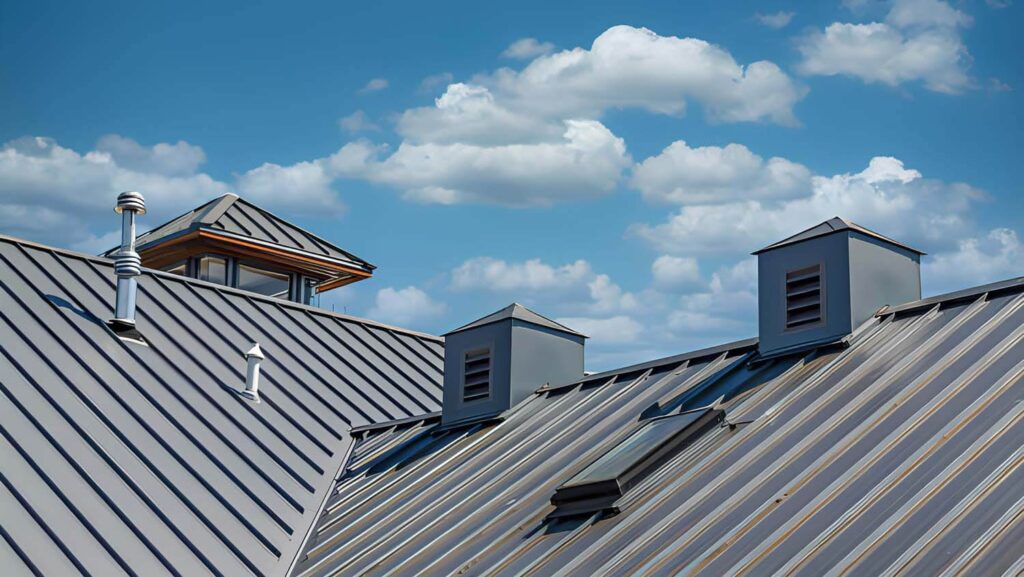
The stone coating usually provides a weather-resistant surface.
The metal plates are made of steel, which is known for its long-lasting life and toughness. These two make the stone-coated metal roofing a durable and reliable system.
These metal roofs are energy efficient during the hot weather due to the reflecting properties of the metal.
They reflect solar heat, keeping the property cool. In addition to this, these roofs are also resistant to fire.
Are Metal Roofs Noisy During The Rain FAQs
Are metal roofs louder than shingles?
Technically, yes. Metal roofs are about 52 dB, while asphalt shingles produce a sound of 46 dB. The difference is about 8 dB, which is undetectable to the human ear.
Do standing seam metal roofs make noise too?
Yes, standing seam metal roofs produce noise when it rains because they have raised seams that run vertically along the roof surface, affecting how water flows.
How much does it cost to make a metal roof soundproof?
The expense for insulating a steel building measuring 40 feet by 60 feet varies between $1,200 and $3,600, influenced by the insulation type selected. For instance, a standard R-13 single-layer insulation typically costs about $0.50 for each square foot.
Conclusion
To conclude, metal roofs can be loud and quiet depending on where they are used and the materials used in them. They are not any louder than the other roofing types.
Stone-coated metal roofs are considered the finest quality roofs regarding sound-dampening properties.
That’s it. I hope you found our article informative and helpful. Thank you for reading.

